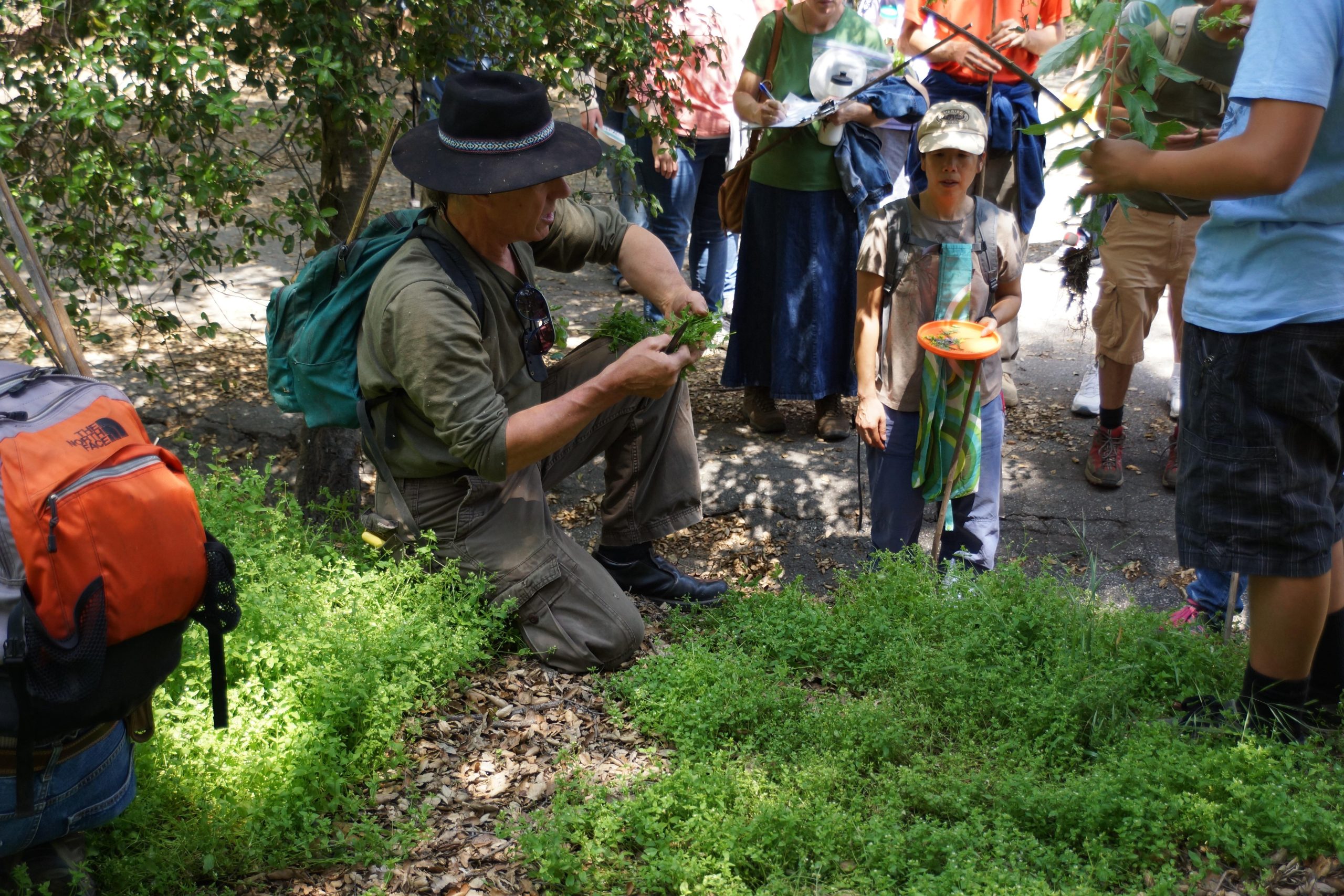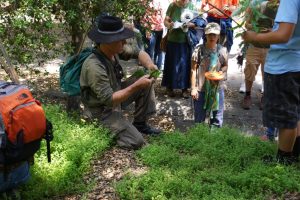By Christopher Nyerges [www.SchoolofSelf-Reliance.com]
The world is full of dangers and threats to our existence, both real and imagined. How we respond to “fear’ is everything. One option is to ignore it, to pretend that it won’t happen to me, and go on with your blissful life. Another option is to act on those fears – to take some sort of action to counteract the rising tide of adrenalin that shouts “the end is near.”
I was bigger than most of my school mates, and so for that reason alone, they thought I was either a good fighter or that I wanted to fight. (Neither was true.) Very early, I decided to enroll in martial arts classes where I got to strengthen my body, learn control, and even spar and roll around on the mat with other students. I realized I wasn’t the smartest, strongest, or fastest, but I learned how to fall, and learned what it feels like to take a hit. Most importantly, I learned how to avoid a fight in the first place, and my fears in that area subsided significantly.
In high school, I studied (formally and informally) world economics and world agriculture. I became convinced that a world-wide famine was inevitable by the end of the 1970s. It didn’t help that several marginal religious groups also believed that this famine was a sure thing, and that it would usher in the return of Jesus. I wasn’t convinced about the Jesus part, but the possibility of a world famine – and all of its accompanying horrors – put me into a cold sweat more than once. My solution was to learn about botany, wild foods, and methods of backyard organic gardening. I figured that I would at least be able to feed myself and my family.
Nyerges (right) leading a wild food outing in January of 1974
Little by little, I learned to identify and use the plants that freely grew all around us, and sustained generations of native Americans. In addition, since my mother’s brothers were all farmers, my mother had the knowledge to teach me how to grow food from seeds and cuttings. And as I began to eat more and more wild foods and foods that I grew, my fears of dying in a worldwide famine subsided.
I found that my interest in useful wild plants very enriching. I even spent many weekends and week-long trips in the local mountains eating only what I could find wild. I began the wild food quest out of a primal fear, and soon I was walking on an exciting path, the same path that all my ancestors walked. I wasn’t just getting good nutrition from wild foods. I was making my own medicine as well. Soon, with some guidance from Larry Dean Olsen (author of “Outdoor Survival Skills”), I was learning how to make fire from the woods that nature provided, and I was making sandals, woven mats, baskets, shelter, and containers from the botanical world. I’d come a long way from the fear that I would die as a victim of circumstances, to now seeing the world as my ancestors saw it.
Nyerges (right) leading a survival skills class in the Arroyo Seco, circa 2005
Nature became my supermarket, pharmacy, and hardware store. I no longer lived in fear of an impending famine.
As I grew older, I became enmeshed in the so-called adult world of finances and rents and mortgages and insurances and taxes (et al). This led to new fears, actually two parallel fears. One, I hated seeing all the things that people would do “just for money.” I never wanted to become like those people. But I also sometimes worried that I would run out of money, and become destitute and homeless. I have accepted that money is an essential part of modern life, that we need it just like we need oxygen. But I have also found a balance so that my life is about “something,” and not just about the pursuit of money.
My fears have gradually subsided. Yes, I accept death and an inevitable aspect of life, and I do not fear it, or think about it much.
Fear can be a powerful motivator if we look at the cause of the fear honestly, and make an effort to take some positive action.
Nyerges, circa 2010, teaching students how to identify wild foods
A TRUE STORY
As the summer of 1999 was moving along, panic was growing that the world as we knew it would come to an end when the clock turned to 2000. They called it Y2K. I received a phone call one day from a panicked man who wanted to know where he could dig a hole in the desert.
“What’s the hole for?” I asked him.
“For me to live when hell hits the fan.”
“Oh,” I replied, waiting for more. “You mean Y2K?”
“Yes,” he replied in a panicked voice. He explained that he was frightened that he’d lose his business and lifestyle in the aftermath of Y2K.He believed that his “friends” and employees would turn on him.
“So how does a hole in the desert solve your problems?” I asked.
“I’d live there when society descends into chaos.”
“Oh,” I responded, adding, “So have you ever camped out for the night?”
“No,” he replied.
“So do you think you’d be able to live in good health in a hold in the desert?” I asked.
Silence.
We continued to talk. He explained that he was affluent, lived alone, ran a business, and feared he’d lose it all if he stayed in urban San Diego.
“Look,” I told him, “I’m not going to take you anywhere to dig a hole. That’s silly!” I suggested that he was serious about getting out of a big city to travel around the county and visit small towns. Take some time. Find something that felt good to him. I explained that rural people all tend to know each other and they tend to be more self-reliant than your average city person.
He called me a few more times to ask questions, and each time his voice was less panicked. I don’t know what he ultimately did (or didn’t do), but I assume he didn’t go to the desert to dig a hole.
The world didn’t end with Y2K but it did bring many fears to the surface and moved many people to begin taking concrete steps to help relieve and eliminate their fears.




